Fitness
Quell Review: Fantasy Fitness To Make Your Muscles Ache
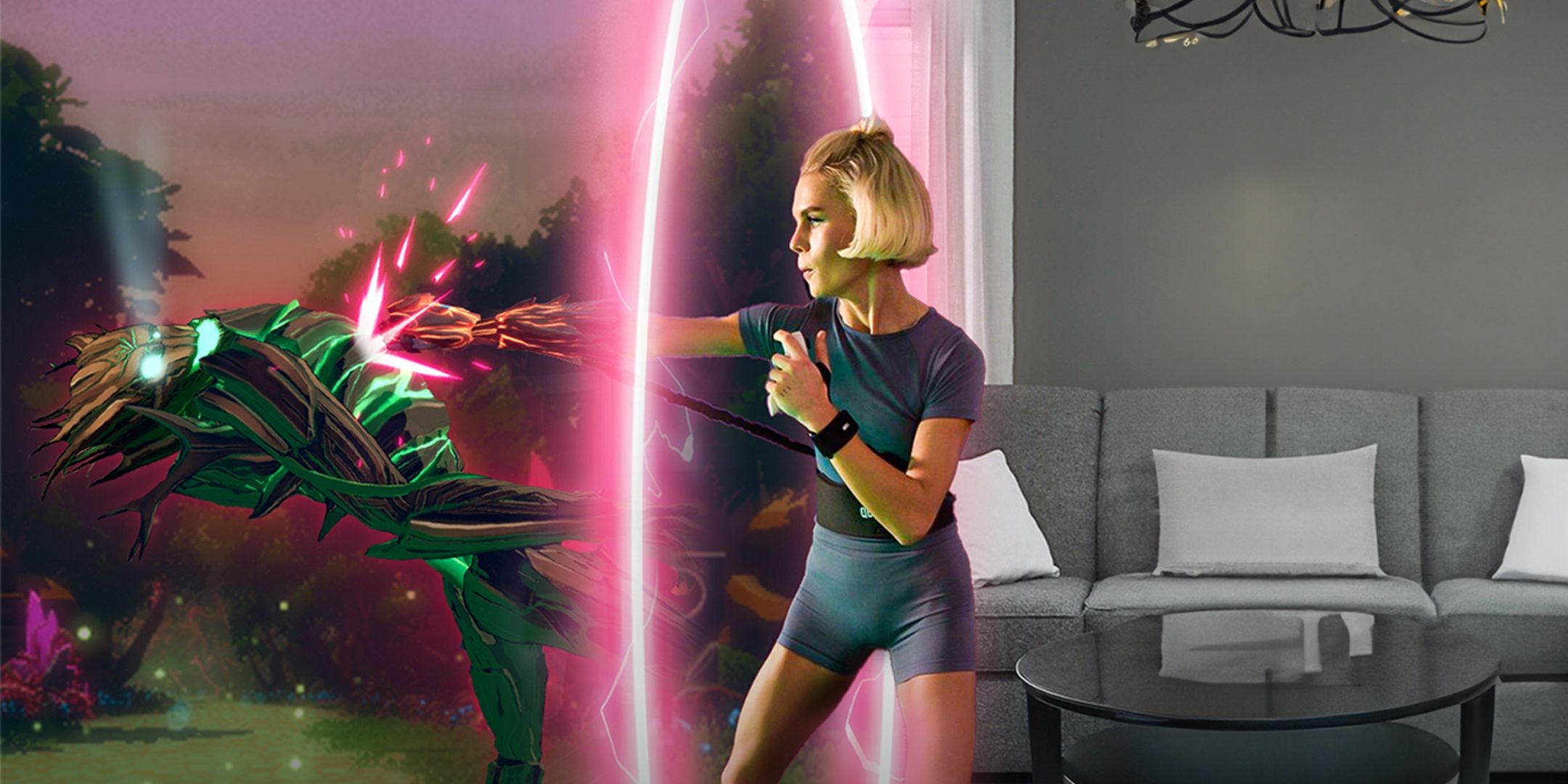
Highlights
- Quell offers intense workouts comparable to personal training sessions, with real-time boxing matches and running sections.
- The complex AI system adapts to your movements and optimises your workout, providing various scores for speed, power, accuracy, and more.
- Shardfall, the first game on the Quell platform, features stylish visuals, engaging gameplay mechanics, and a unique upgrade system to enhance your fitness experience.
Two days after I tried Quell for the first time, I still couldn’t walk. My legs were as stiff as two cricket bats and my arms screamed at me when pouring the kettle. If navigating the tube home from developer Quell’s London office drenched in sweat hadn’t told me I’d had a workout, the days after certainly did.
Quell is both the name of the developer and the fitness platform it has created. The Quell Impact is the kit that you use to play the games hosted on its platform. Consisting of two Wii nunchuk-esque controllers, a chest strap, and resistance bands, it’s pretty simple to set up and get started. Once you do, though, you’re in for an intense workout that I can only imagine compares to a session with a personal trainer.
You do need a Wi-Fi connection to set up Quell initially, meaning that my ethernet-connected desktop PC wasn’t compatible, but my lower-spec laptop was.
Quell draws instant comparisons to Nintendo’s chronically under-supported Ring Fit Adventure. They’re both fitness games that have a unique controller and employ RPG mechanics to trick you into exercising while you game. Going into my session at Quell HQ, I thought the game looked like Ring Fit with Peloton branding, a cooler version of Nintendo’s game for grown-ups with jobs and lives and who don’t want to beat up cartoon dragons wearing spandex. But it was so much more.
I liked Ring Fit, but it had its pitfalls. The turn-based combat allowed you to take breathers between workout sections, and you could always pick an attack that gave you a break if you were getting tired – a little yoga stretch instead of more squats.
Shardfall, the first game on the Quell platform, doesn’t give you that option. The combat is a real-time boxing match against clever AI beasties who block, dodge, and swing back to keep you on your toes. Combat segues back into running sections, and just as your legs are beginning to get tired from running, ducking, jumping, and sometimes sprinting on the spot and you remember you’re actually exercising right now and ew- you’re back in combat. Your legs get a much-needed breather but your arms have been tagged in.
The flow of each 20-minute level is impeccable, with each reprieve coming just when you need a break from punching or running. That’s thanks to a complex AI system that works with the motion trackers in the three controllers (one’s hidden in that chest strap) to understand when you’re getting tired, when you’re starting to drag your feet, and when you need that final push to power through to the end. Procedurally generating the levels allows the Quell AI to know exactly what to feed you to optimise your workout. It’s as if Joel from Helldivers 2 was your PT.
Your battles are also broken down into scores for various aspects of your workout: speed, power, accuracy, etc. If you’re low on one, the AI seems to feed you more enemies focused on improving it.
I’m the perfect target audience for Quell. Two of the company’s three co-founders, Cameron Brookhouse and Lorenzo Spreafico, say they’re looking to attract gamers who want to get fit, but can’t for whatever reason. Maybe they don’t have the time, maybe they’re intimidated by the gym, maybe just going for a run isn’t enough motivation in and of itself. I tick all three boxes. Brookhouse throws some stats at me. Apparently 50 percent of Strava users said they “hate or barely tolerate running.” Before COVID, his research found that “64 percent of gym memberships were dormant.” I can believe it, but is Quell the antidote to making exercise fun?
I love playing sports as exercise, because you don’t think about exercising. You think about the goal. When you’re knackered in the 80th minute of a football match, you still make that gasping sprint towards the edge of the box just in case you turn into Stevie Gerrard and bury a screamer to seal the win. If I was just on a run, I’d just stop running because I was tired. Video games as exercise follow the same premise: there’s a goal, and you’ll burn calories trying to achieve that goal.
As well as the running and punching, each Shardfall run features a Hades-esque upgrade system. You can buff your jabs, swings, and uppercuts individually, or improve your spells which can either heal you or deal damage. By the time I was fighting the boss, my quick punches were dealing more damage based on how quickly I performed them, and I got a little health back for hitting certain combos, too. Building your boons and crafting your run adds depth to the gameplay far beyond the physical aspects, and successful runs will unlock random upgrades for your gear to help you next time around.
For those of you technical about fitness, Quell offers HIIT workouts that aim to hit the “gold standard” (Spreafico) of burning 600 calories per hour. I’m not sure calorie counting is the best way of measuring fitness, but according to the founders, their market research suggested that this is what most players are looking for.
It’s worth noting at this point that the game looks great, too. It’s easy to miss Shardfall’s stylised artistic direction when you’re desperately trying to focus on taking your next breath, but it looks good. The different biomes offer fresh visual stimulus around the edge of the screen, and the variety of enemies keeps things interesting both visually and mechanically.
Your opponents, which range from fantasy treemen and exploding flies to robots with devastating sweeping attacks, are realised in an almost Borderlands-esque cel-shaded design, and it’s incredibly satisfying to see cracks form on their pristine visages as you deal more damage to them. As for combat challenge, their blocks force you to utilise different punches and the enemy types require different strategies (jab as fast as you can at the flies to beat them before they explode, versus carefully approach the barbed treefolk because punching their gnarled exterior will damage yourself).
Every action in the game feels incredibly natural. Excellent audio design tells you exactly when you need to jump over and slide under obstacles, and punches fly with pinpoint accuracy based on your movements. The one move I struggled to get the hang of was the chest press that casts your magic spell, but hopefully that will become more intuitive with time.
This is a game that requires you to think. To strategise. To approach it as a game rather than just a means to get fit. Brookhouse and co-founder Martin Tweedie’s (absent from our interview) university days spent grinding Destiny shines through in the game. This isn’t just a fitness game, this is a good game, too, and that’s the biggest compliment I can pay it. You underestimate how difficult it is to block and parry when you’re 18 minutes into a fitness session, when your brain slows down to focus on receiving adequate oxygen a simple jump over a hurdle on your path becomes a difficult obstacle, let alone an end-of-level boss.
I’ll be honest, I don’t remember much about the boss fight from my session at the Quell offices. I was so tired by this point that I just punched, ducked, and dodged my way through it in what was, apparently, record time. I think my choice of buffs along the way carried me through the fatigue, and meant that I could just focus on hefting my leaden arms towards the screen rather than strategising.
Shardfall is fantastic. Since my first impression I’ve committed to working out twice a week on the platform (it recommends 2.5 times a week, I’ll get there). I’m eager to get back in each time, and less achy after each consecutive session. I feel fitter already, and better in myself. But there’s more to come.
Quell is in its earliest stages now, but the developers have big plans. They talk about the social aspects of sports being important, so presumably leaderboards will come. They mention follow-up games to Shardfall could focus on different types of workouts, like endurance games or short, strength-based games. You’re never going to be able to bulk up based on resistance bands alone, but Quell is looking to support this live-service going forwards.
However, unlike most live-service games, Quell has a unique monetisation model that is more like a gym membership. After the initial £250 outlay to buy the kit and game, you subscribe to the platform for £10 a month. There are no battle passes or microtransactions, but Quell has funnelled all of those live-service trappings into making you want to exercise.
However, it all depends on ongoing support. Ring Fit died because Nintendo added nothing after the game’s initial launch. 64 percent of gym memberships are dormant. While its founders shout ideas about “Rocket League-like” arcadey gameplay like dropping in for a few rounds with friends, there’s a lot of work ahead in order to keep players interested. Just being a fitness game isn’t enough. Luckily for Quell, Shardfall might just have that special spark needed to be something more.

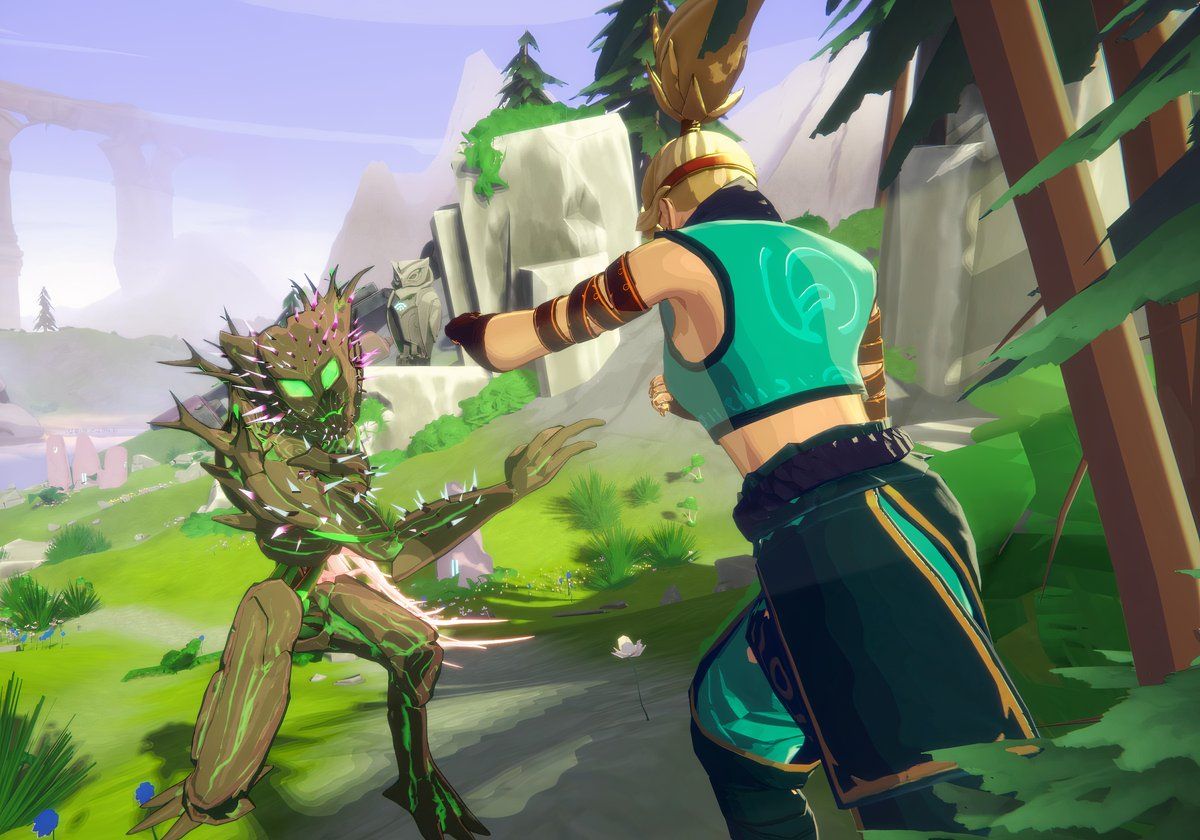
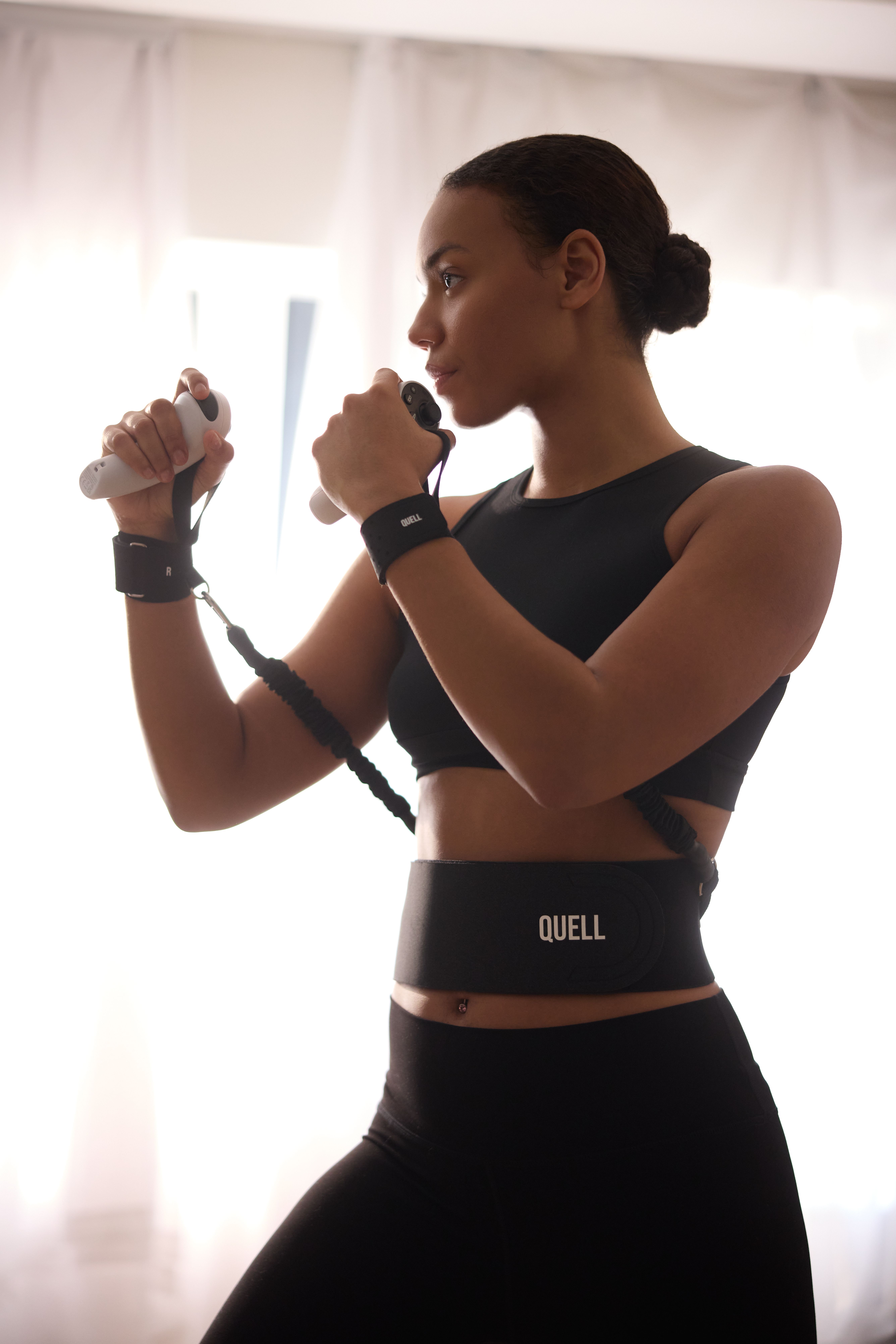
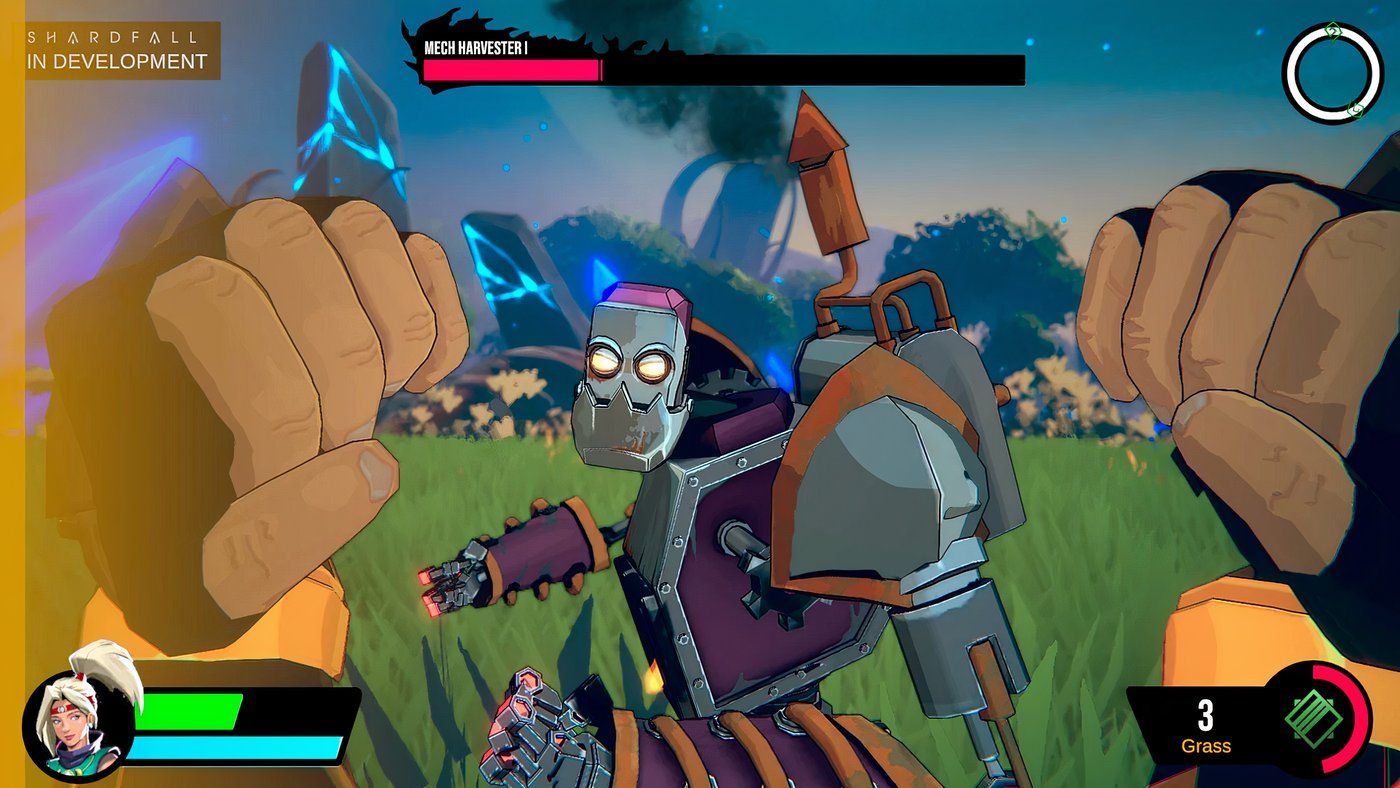
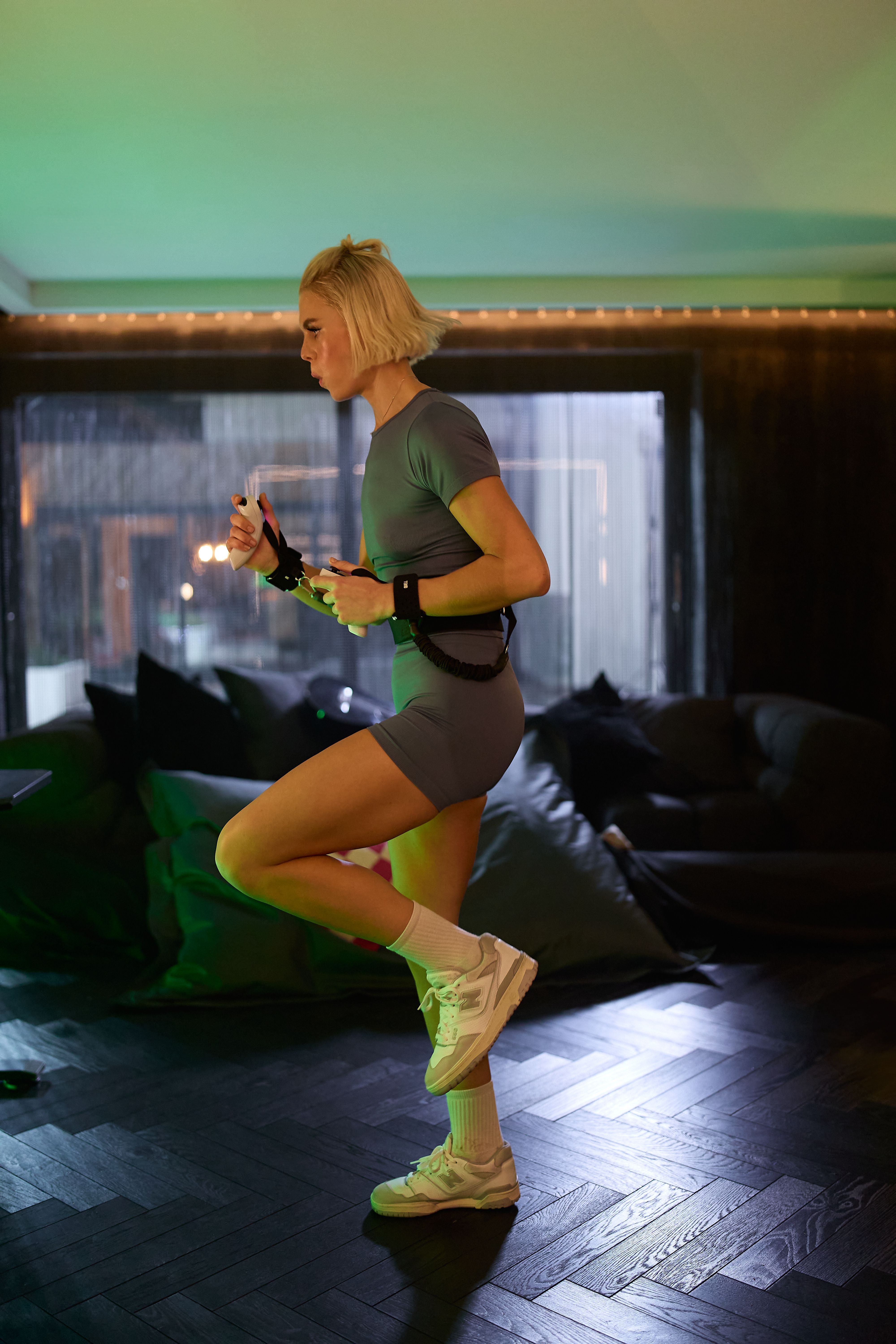
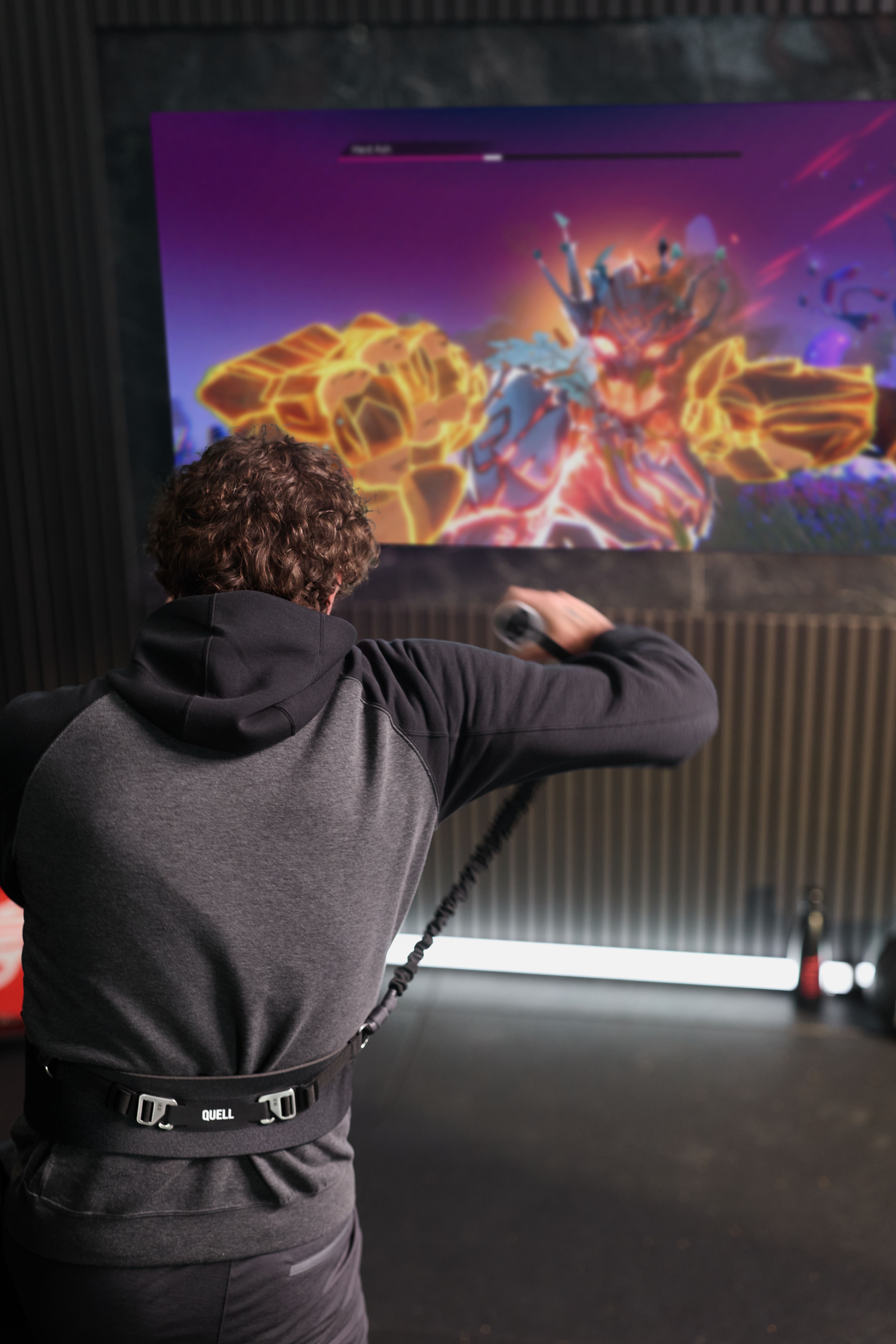






:max_bytes(150000):strip_icc()/roundup-writereditor-loved-deals-tout-f5de51f85de145b2b1eb99cdb7b6cb84.jpg)


